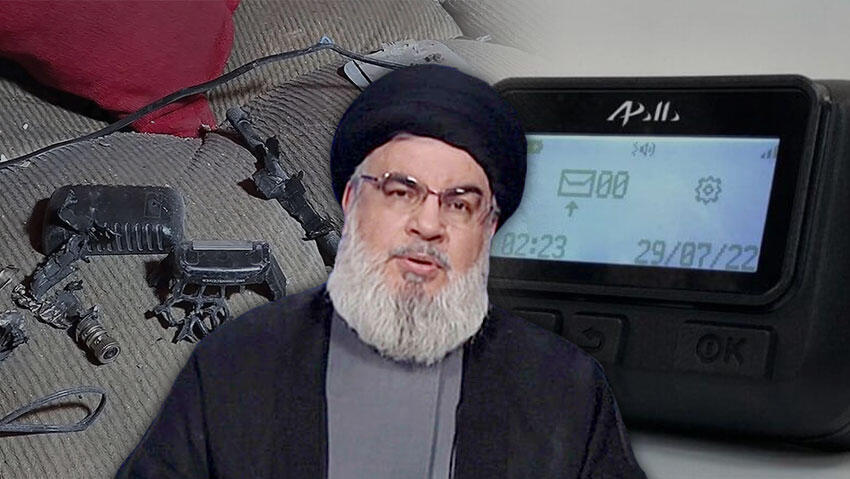Getting your Trinity Audio player ready...
Even before Wednesday's walkie-talkie explosions in Lebanon, Iraqi President Abdul Latif Rashid called Lebanon’s Prime Minister Najib Mikati, expressing shock over "Israel's murderous assault" and announced that Iraq would send aid to Beirut via aircraft carrying medical supplies.
Following the pager attack the day before, Jordan also dispatched aid via aircraft on Wednesday, sending medicines, food supplies and bottled water. In response, the Iranian Red Crescent Society (similar to the Red Cross Society) sent a special plane carrying 12 doctors and nurses, along with food packages, medicines and medical supplies to the country.
At the same time, Lebanon's Health Minister Firas Al-Abiad said that medical teams at about 100 hospitals across the country are unable to provide care or perform surgeries on hundreds of severely wounded individuals. Lebanon plans to send dozens of patients to Syria and Iran for complex surgeries and treatments.
How dire is the situation in Lebanon? Before Wednesday’s 14 deaths and 450 injuries resulting from walkie-talkie explosions, the death toll from the day before had already risen to 12, including two children with over 3,000 injured, 400 of whom are in critical condition. Most injuries occurred on individuals’ upper bodies — including the face, arms and upper chest.
Lebanese reports indicated the condition of Iran’s ambassador to Lebanon Mojtaba Amani is critical. As a result of a pager explosion, he lost one eye and the other was severely injured, leaving him almost completely blind.
“Iran's Ambassador must explain why he had a Hezbollah military communication device, given Iran's long history of using its 'diplomats' to carry out terror,” tweeted U.S. Congressman Brad Sherman on Tuesday. “This includes a plot to assassinate the Saudi ambassador to the United States and target dissidents abroad, especially in Europe,” Sherman stated. “In war, it’s impossible to fully prevent harm to civilians—especially when Hezbollah operates in Beirut’s densest civilian areas.”
2 View gallery


Walkie-talkie inspections in Lebanon following the coordinated explosions
(Photo: Photo by AFP)
“I won't speak with an Israeli media outlet at this time,” Mahmoud 28, a Beirut University graduate who defined himself as “a fierce opponent of Hezbollah,” told me on Tuesday. However, he found himself volunteering beside the beds of Hezbollah operatives.
Like other Lebanese people I contacted, Mahmoud refused to speak with me or send me written messages. “You’ve gone too far this time,” wrote Nora, an economist. “This is too big of a success, with that comes with it. I have no interest in engaging with Israelis now. Do some soul-searching on your end. You’ve harmed the elderly and two children.”
Nasrallah told the Lebanese public which was listening, unlike previous speeches he made that were mostly ignored, that his terror group had suffered a severe blow but that it was not disabled or deterred and would continue to fight until Israel ends its war on Gaza.
Nasrallah himself, who in his two recent speeches warned residents of southern Lebanon — especially Hezbollah operatives — not to use electronic communication devices, wasn’t injured in the explosions.
Rumors claim that three of his bodyguards were seriously injured by the pager detonations. It’s still unclear whether they were near the secretary-general at the time of the explosion.



